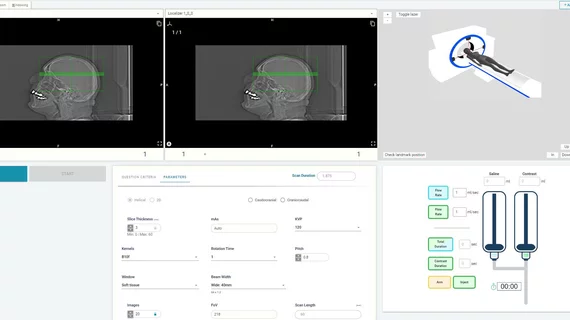VR app simulates imaging room, patient and CT unit to teach techs how to scan
In what is being called the “first simulator of its kind,” a new application may be able to teach technologists how to operate a CT scanner from the safety of a fully virtual environment.
The ScanLabCT simulates a hospital imaging room with a fully “functional” video game CT unit, complete with a digital “patient” in need of imaging. In a statement sent to Health Imaging, the developer said the program is designed to help “students and technologists safely and efficiently improve their knowledge and scanning skills” while providing additional tools for educators to monitor the simulation and offer feedback.
In virtual reality (VR), no patient or technologist is exposed to radiation. To the developers of ScanLab, that’s a major selling point for radiology practices seeking safe ways to offer training.
“With computed tomography being based on ionizing radiation, there is a crucial need for a risk-free environment that current and future radiologic professionals can utilize to gain experience and expertise in CT. ScanLabCT provides that space and is the next step in our evolution as an organization,” Matthew Hayes, a rad tech and the creator of ScanLab said in the statement.
ScanLabCT is listed on its website as “coming soon."
The developer released ScanLabMR in 2021, designed to teach radiologic technologists to operate an MRI machine. On its "about us" page, ScanLab lists prominent hospitals, radiologists, and foundations as collaborators for the development of its simulators.

